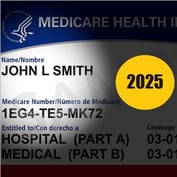(Bloomberg View) — In making his case for universal health care, Sen. Bernie Sanders has reignited a debate over whether the U.S. should have a single-payer system. It would simplify the administration of health insurance, but his proposal is nevertheless ill-advised — not least because it’s possible to simplify billing and claims processing in health care without making such an extreme change.
In 2014, the net cost of health insurance in the U.S. was almost $200 billion, most of which was for billing and related expenses (as opposed to things like premium taxes and profits). These costs can readily be lowered. After all, other countries with mixed private-public systems — including the Netherlands, Switzerland and Germany — have administrative processes that cost 25 to 60 percent less than ours.
Although the Patient Protection and Affordable Care Act (PPACA) included some provisions aimed at cutting administrative costs, much more can be done. The Center for American Progress has assembled several proposals that it estimates could save $40 billion a year.
One step that should be taken immediately is to simplify the transaction process involved in billing and processing claims. Medicare’s processing costs are relatively low, in part because administrative contractors streamline the payment process. All health care payments could be gradually moved to this platform.
Such a change could be made in steps. First, state Medicaid programs could begin using regional Medicare administrative contractors to process claims. Then Medicare Advantage programs, which are private insurance plans that currently enroll about 30 percent of Medicare beneficiaries, could be required to do the same. Next, the government could either require or provide incentives for self-insured employer plans to use the system. Ultimately, the economies of scale would become large enough to encourage private insurers to adopt the system, too. Policy makers could add incentives, if need be.
See also: View: Two ways to keep a lid on Medicare cost increases
This reform would be practical and generate larger benefits than may be immediately apparent. The Medicare administrative process is already regionalized and subject to competition among processing contractors. It already includes standards for efficiency and provider education, and requires transparency in processing.
At the same time, doctors and other care providers would save money and effort by dealing with just one payment-processing system, and the consistency in paperwork would reduce errors. Various studies estimate that providers could save as much as 25 percent on claims processing.








 January 21, 2016 at 08:06 AM
January 21, 2016 at 08:06 AM










